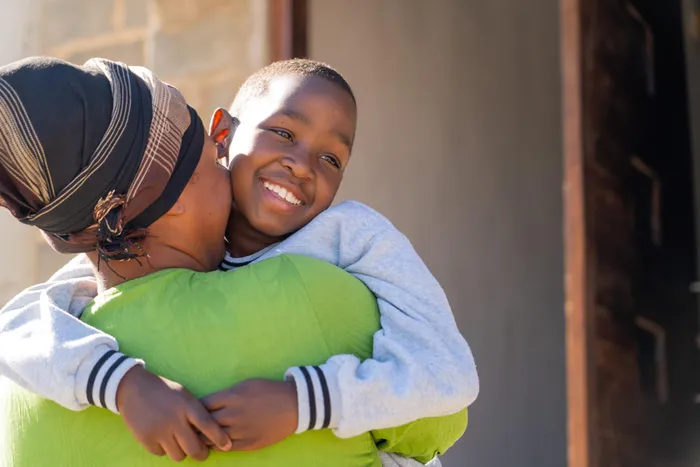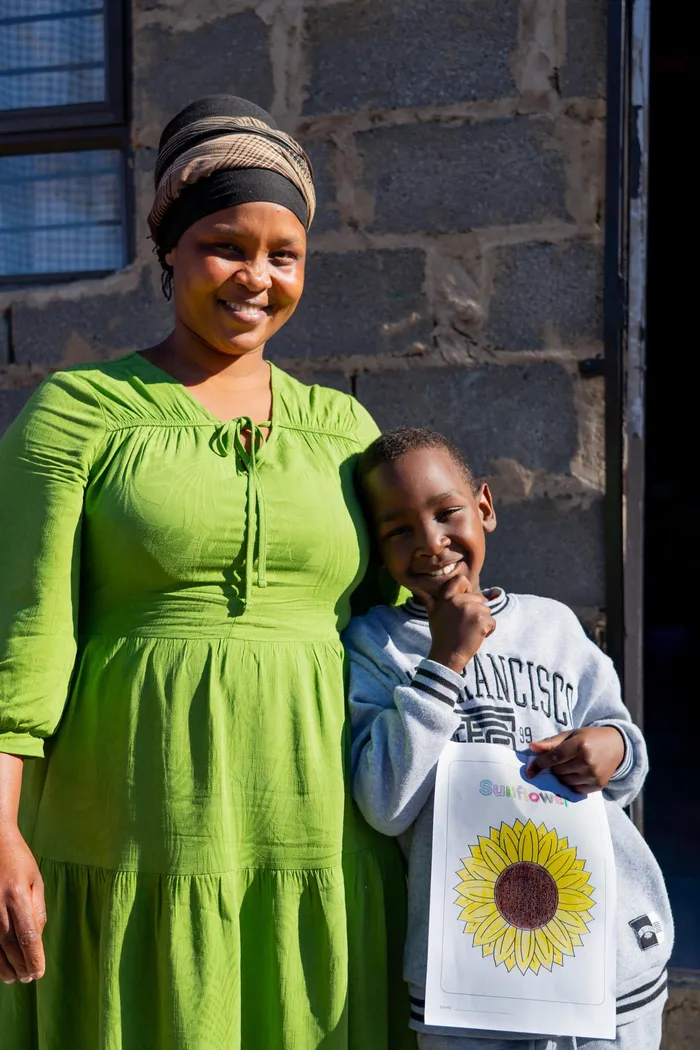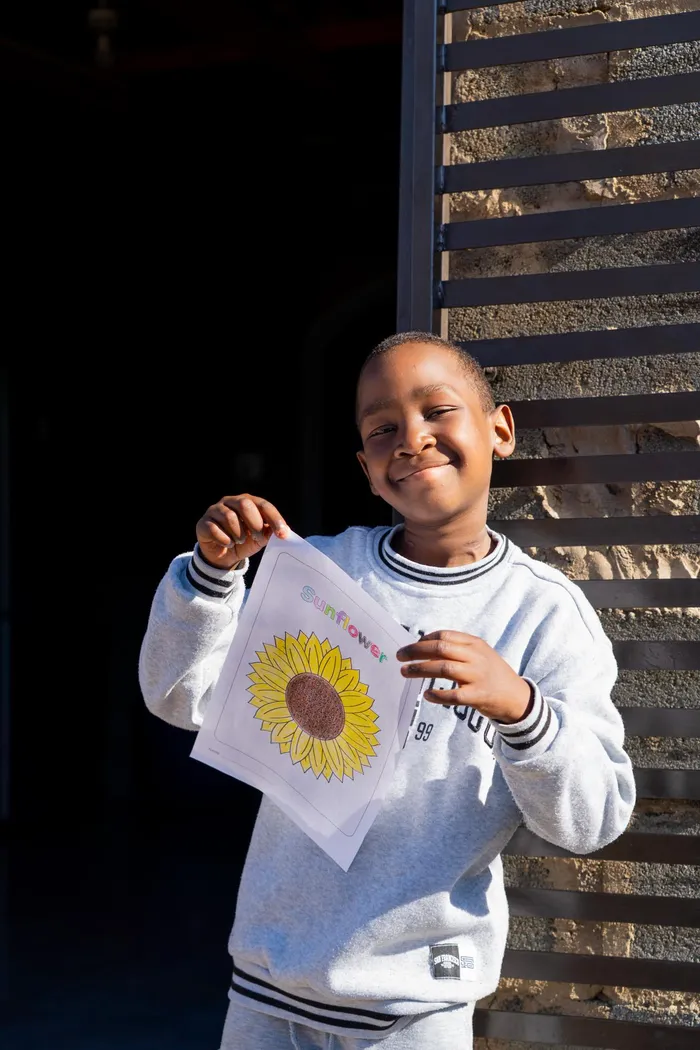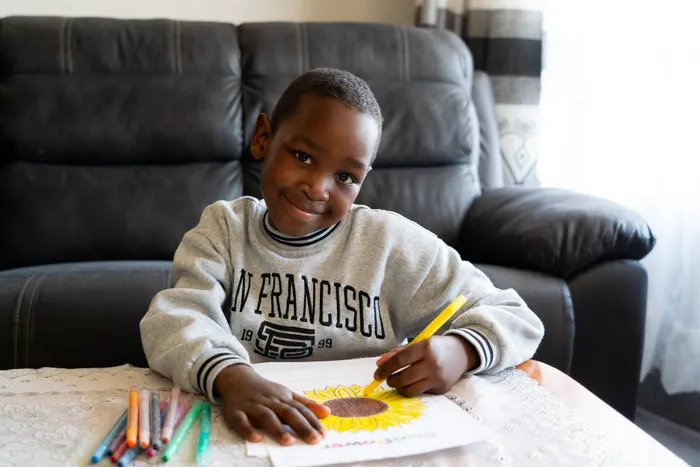7-year-old Avukile overcomes leukaemia after a stem cell transplant

Avukile, a seven-year-old battling Acute Lymphoblastic Leukaemia, has successfully passed the crucial 100-day mark since his life-saving stem cell transplant.
Image: DKMS Africa/ Facebook
Seven-year-old Avukile from Estcourt, KwaZulu-Natal, recently achieved a major recovery milestone: surpassing the crucial 100-day mark after a stem cell transplant. Avukile was diagnosed with acute lymphoblastic leukaemia (ALL), an aggressive cancer affecting the blood and bone marrow.
The prognosis he received was grim.
His recovery is a testament to the selfless commitment and generosity of his donor.
Avukile (only his first name was provided) was a lively child who enjoyed playing with toy cars and friends; their joyous laughter was often heard.
In June 2023, a noticeable change occurred: boundless energy gave way to persistent fatigue. A loss of appetite soon followed this initial sign of trouble.

Thobile and Avukile celebrate a significant milestone in Avukile's recovery journey after a stem cell transplant.
Image: DKMS Africa/ Facebook
His mother, Thobile, sought medical help. An injection and pills provided temporary relief, but symptoms returned. During a bath, Avukile flinched when his stomach was touched, leading to a hospital visit. A CT scan revealed internal boils, but antibiotics failed to improve his condition.
Avukile’s exhaustion returned in early 2024, leading to his transfer to another hospital for further tests after an initial discharge. That is when he was diagnosed with ALL, and his mother learned he required a stem cell transplant from a matching donor.
“A few months later, I got a call from the doctors saying they had found a match. But the excitement quickly turned to disappointment. They said the donor could only donate in two or three years’ time due to unforeseen circumstances. I was devastated,” Thobile said.
Avukile had to endure months of chemotherapy. However, in February, a new donor was found, and they were ready to donate.
“Everything moved so fast,” Thobile said.
Thobile expressed her profound gratitude to the donor, saying, “The Lord must bless them and their family. May their wishes be granted. They must continue encouraging others to donate and show how impactful it is to help children like my son.”
DKMS Africa community engagement and communication head Palesa Mokomele said the first 100 days post-transplant are the most high-risk.
DKMS Africa is a non-profit organisation dedicated to fighting blood cancer and life-threatening blood disorders.
“It’s after a transplant that patients are most vulnerable to complications such as infection and graft-versus-host disease, which occurs when the new cells from the donor mistake the patient’s body for something harmful and begin attacking it. Surpassing day 100 signals that the transplant has been accepted by the body and that the child is entering a much more stable phase of healing,” Mokomele said.
Avukile’s story highlighted how donor registration can profoundly change lives.

Avukile celebrates a significant milestone in his recovery journey after a stem cell transplant.
Image: DKMS Africa/ Facebook
“In South Africa, blood cancers represent 33% of all childhood cancer cases, affecting over 1,400 children annually,” Mokomele said.
“Many of these young patients, along with others suffering from blood disorders, will require a stem cell transplant to survive. This is because their disease disrupts the production and function of blood cells, making stem cell donation a potentially lifesaving option, particularly for those who don’t respond fully to conventional treatments like radiotherapy or chemotherapy, or who have relapsed after prior therapy.
"However, finding a matching stem cell donor can take months, sometimes even years, and unfortunately, some patients may never find a suitable match at all.
“Although a patient’s relatives are the first to be considered as potential donors, only about 30% find a related match. When a related match can’t be found, the search then shifts to unrelated donors on the local stem cell registry.”

Avukile’s journey highlights the importance of stem cell donation in fighting childhood cancer.
Image: DKMS Africa/ Facebook
Mokomele noted the national registry lacks diverse representation, with over 17,000 tissue types combining in millions of ways. This disparity severely lowers the chances for Black, Coloured, and Asian patients to find matches. Therefore, each new registration significantly boosts the possibility of saving a life.
Sunflower Day is an annual event that highlights the critical need for stem cell donors in South Africa, bringing attention to blood cancers and blood disorders.
thobeka.ngema@inl.co.za
Related Topics: